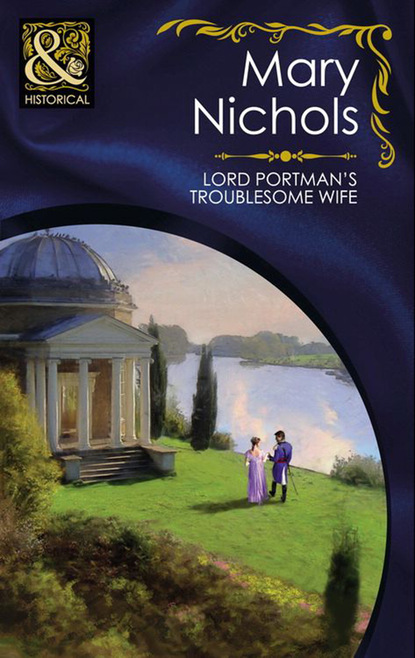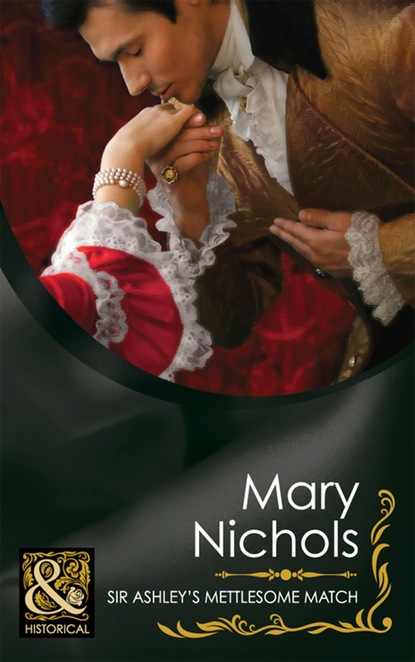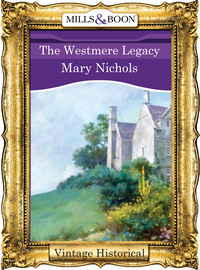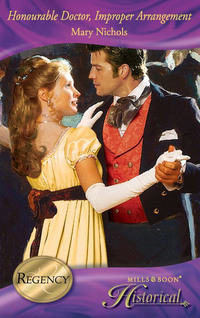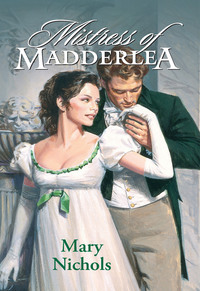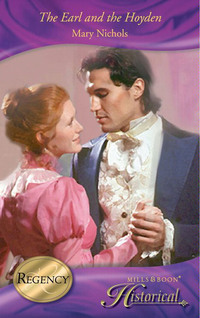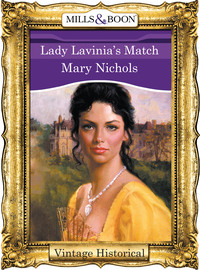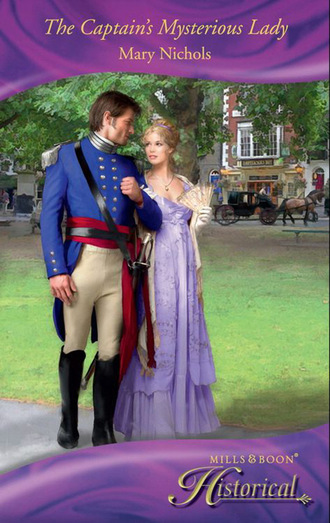
Полная версия
The Captain's Mysterious Lady

‘Tell me about the man who died. What manner of man was he?’ Amy asked.
‘I know nothing of him. He boarded the coach with you, and your tickets were in his pockets, so one supposes he was looking after you,’ James replied.
‘So I was totally dependent on him,’ she mused.
‘It would seem so.’
‘How did I get from the overturned coach to the inn?’ she wanted to know.
‘I rode one of the coach horses with you in front of me. Have you no memory of that?’
‘None at all,’ she said swiftly. But that was her memory. A slow ride, cradled in front of him on a horse with no saddle. She had felt warm and protected, with his arm about her and his coat enveloping them both. She did not remember arriving at the inn, so she must have drifted into unconsciousness again. ‘How difficult and uncomfortable that must have been for you.’
He noticed the colour flood her face and felt sure she had remembered it. How much more was she concealing? He would have it out of her, one way or another, before another day was through.
Born in Singapore, Mary Nichols came to England when she was three, and has spent most of her life in different parts of East Anglia. She has been a radiographer, school secretary, information officer and industrial editor, as well as a writer. She has three grown-up children, and four grandchildren.
Recent novels by the same author:
TALK OF THE TON
WORKING MAN, SOCIETY BRIDE
A DESIRABLE HUSBAND
RUNAWAY MISS
RAGS-TO-RICHES BRIDE
THE EARL AND THE HOYDEN
CLAIMING THE ASHBROOKE HEIR (part of The Secret Baby Bargain)
HONOURABLE DOCTOR, IMPROPER ARRANGEMENT
THE CAPTAIN’S MYSTERIOUS LADY is the first in Mary Nichols’ The Picadilly Gentlemen’s Club
Look out for THE VISCOUNT’S UNCONVENTIONAL BRIDE Coming May 2010
The Captain’s Mysterious Lady
Mary Nichols

www.millsandboon.co.uk
MILLS & BOON
Before you start reading, why not sign up?
Thank you for downloading this Mills & Boon book. If you want to hear about exclusive discounts, special offers and competitions, sign up to our email newsletter today!
SIGN ME UP!
Or simply visit
signup.millsandboon.co.uk
Mills & Boon emails are completely free to receive and you can unsubscribe at any time via the link in any email we send you.
Chapter One
Early spring 1750
A breathless James arrived at the Blue Boar in Holborn just in time to see the stage disappearing out of sight. He stood and watched it go and swore roundly in several languages.
‘Dammit, Sam,’ he said at the end of this tirade. ‘The devils have slipped through our fingers again. They’re as slippery as eels, the pair of them.’
‘Yes, sir. Do you think they knew we were on to them?’
‘Couldn’t fail to, could they? We have been hounding them for two years. But they need not think this is the end of it, for I will not give up while there is breath in my body.’
Captain the Honourable James Drymore turned from the sight of the back of the stage disappearing from the end of the road and went into the inn to enquire about its passengers. He did not expect to be given names; they would have meant little if he had. Those two, whose real names he had ascertained were Morgan Randle and Jeremy Smith, would have used aliases and probably disguises, too. If his informant had been right, they were finding his pursuit of them too close for comfort and had decided to leave London for the provinces. He did not know their destination, but he had learned, only that morning, that they had arranged to meet at the Blue Boar at nine in the morning with the intention of boarding a coach north. He had rushed home to pack a few clothes, put some money and his pistol into his pocket and, with Sam in tow as he always was, made all haste to the inn.
‘Two men travelling together,’ the proprietor repeated, when James finally persuaded him to stop rushing about issuing orders to his servants and speak to him. ‘Well, there were two, clerical men I should say. Dark clothes, bob wigs, shallow hats.’
‘And was one a spidershanks, without an ounce of fat on him, and the other a beefy fellow with a bulbous nose?’ James asked, mentioning attributes it would be hard to disguise, even if their clothes and wigs were changed.
‘You could so describe them, sir. What might I ask is your interest in them?’
‘I am empowered by the Bow Street magistrate to arrest them for theft and murder, so if you know anything of them you should tell me at once.’
‘I don’t ask the passengers for their histories when they board one of my coaches, sir. I’d never do any business that way.’
‘I understand that, but perhaps you could tell me their destination.’
‘They bought tickets to Peterborough. Where they were going from there I cannot tell.’
‘And when is the next coach going in that direction?’
‘To Peterborough? Not until tomorrow, but there’s one going to Lynn in half an hour. You could leave it at Downham Market and find your way to Peterborough from there.’
‘That will have to do.’
He bought inside tickets for himself and Sam, his friend as well as his servant, and went into the inn’s parlour to wile away the thirty minutes they had to wait. There was a good fire in there and they sat warming their frozen toes on the fender and drinking mulled wine.
James had every reason to want to see Randle and Smith brought to justice. The victim of the murder he had spoken of had been his own wife. Poor, innocent Caroline had simply been in the wrong place at the wrong time when those two had run into the silversmiths’ to rob it at gunpoint. According to the shopkeeper, she had been buying a silver cravat pin as a present for him. She appeared well and happy and had told him she was looking forward to having her husband home again after two years at sea. The thieves had waved their pistols about and when he had been too slow in obeying their commands to hand over everything of value, one had fired and the ball had ricocheted off the wall behind Caroline and mortally wounded her.
She had been carried to Colbridge House, the family home in Golden Square, but in spite of the best care his father could obtain for her, she had died the same day. ‘She passed away with your name on her lips,’ his father had said, giving him the pin that had been in her hand. ‘She charged me to give you this.’ James had taken it and wept over it, wept over her grave, too, but when his tears dried, he had been miserable, angry and guilty by turns.
He had been a poor husband, had not told her often enough how much she meant to him, and now it was too late. If he had not been away so much, they might have had children; he knew she had wanted them, as he had. And poor, innocent darling, she was thinking of him when she went into that shop to buy him a cominghome present. The anguish was unbearable and his temper was something dreadful to behold. Only his patient and loyal Sam Roker put up with him.
A visit to Bow Street had followed, where he had raved at the watchmen and constables for their lack of action. It was unfair of him, he supposed; they were not employed to investigate, but simply to arrest wrongdoers when they were brought to their attention. There seemed no one prepared to spend time on detective work. It was slow and laborious and nearly always futile. James had resolved to catch the pair himself, come hell or high water. It was a quest he had been pursuing for the best part of two years and had involved putting on some strange disguises and mixing with the rogues who inhabited London’s underworld. News of his pursuit seemed always to precede him because, whenever he followed up a lead he had been given, the quarry had decamped. The lure of a reward had eventually brought information that the two men were leaving London from the Blue Boar, but, once again, he had arrived too late.
He sat drinking his spicy wine, while musing on his life with Caroline. He had been away at sea a great deal of the time, but when he was at home, they had been happy together, delighting in each other, sometimes dining in, sometimes going to the theatre, meeting friends, going for walks, planning the family they hoped to have, until it was time to leave her again. After his last leave, he had, for her sake, resolved to quit the service, settle down to domesticity and become a doting husband and father. He had been torn apart with guilt to think she would never know of that promise. The plans he had made for going back to his small estate near Newmarket and becoming a gentleman farmer meant nothing without her to share them. He could not bear to stay there and left his steward in charge while he set about tracing the murdering thieves. It had become a crusade from which he never wavered.
In so doing he had been instrumental in uncovering other crimes which he had reported to the appropriate magistrate, earning him the name of thieftaker, a soubriquet he hated. Thieftakers had a bad reputation with the public for frequently faking evidence to obtain a conviction in order to claim the reward. He did not need the money. True, he was only the second son of the Earl of Colbridge and not his heir, but he had been left an annuity by his maternal grandfather that, together with his pay and his share of prize money, meant he was of independent means. Anything he was offered for his services to law and order he gave to charity. ‘What we need,’ he was fond of telling Sam, ‘is an independent police force paid for out of taxes, a body of astute, incorruptible men whom everyone can trust.’
‘And pigs might fly,’ Sam would say. ‘Folks’d never agree to pay for it.’
They heard a horn followed by the rattle of a coach coming into the yard and went to join their fellow passengers. Apart from two or three men who climbed on the roof, which was cheaper, there were three inside besides themselves. A parson in a black suit of clothes, a full wig and wide-brimmed hat, and a man and a young woman who appeared to be travelling together. James, settling himself in the seat opposite, found himself covertly studying her.
She was so pale there was hardly a vestige of colour in her face and even her lips seemed blanched. Her eyes were blue, but they were clouded by worry. Her clothes, though not the height of fashion, were nevertheless of good quality. Her simple unpadded open gown was in a blue-and-white striped material with an embroidered stomacher. She had a cloak, but no hat or gloves and her shoes were flimsy, not intended for out of doors. Her fair hair hung about her shoulders in a tangle, as if she had left home in a great hurry. Had she been coerced into making the journey? Or even abducted? She did not look as if she would fetch much in the way of ransom.
She noticed him looking at her and quickly looked away. Was she ill? Was she nervous because she was unused to travelling by public coach? She would not look at her companion and when the man put a hand on her arm, she flinched as if she had been struck. He wore a black suit of clothes, shiny with age, and a beaver hat with a wide crown crammed on to a grimy scratch wig. Not on the same social plane, James concluded. A servant, perhaps, but not one she trusted.
Sam, sitting in the corner, was looking out of the window at the darkening sky. ‘We’ll have snow afore long,’ he said to no one in particular.
The man with the girl simply grunted in response. ‘Are you and the lady going far?’ James asked him pleasantly.
‘That’s our business,’ the man growled and James noticed the young woman imperceptibly shake her head as if warning him not to pursue his questioning.
He turned to the other occupant of the coach. ‘What about you, sir? Do you have far to travel?’
‘To Cambridge, God and weather permitting,’ the parson said. ‘I never knew winter to last so long. We should be seeing the shoots coming through the cold earth by now, but not a sign of them yet. And what with earthquakes and suchlike I do not doubt we are being punished for our wickedness.’
‘What, all of us?’ James queried. ‘Surely the righteous should not be punished along with the wicked?’
The man paused to look at him and then went on as if such a remark were too foolish to merit an answer. ‘I would not have travelled if it could have been avoided. I abhor London with its smoke and grime and stink. Full of thieves and cutthroats. Why, I had my pocket cut while walking in Hyde Park yesterday.’
‘I am sorry to hear that.’ James answered him, but he was looking sideways at the young woman. She had not moved, was staring straight ahead and did not appear to be listening. What was going on in her head, for clearly something was? He wondered how to draw her into the conversation and then asked himself why he wanted to. If she wished to sit silent, then so be it. ‘Did they take much?’
‘Several guineas, sir. I do not know what the country is coming to, when a man of the cloth can be blatantly robbed in daylight.’
‘You reported it, of course.’
‘Yes, but the judiciary are more concerned with rooting out Jacobites, than protecting honest citizens.’
‘Yes, I heard tell the Young Pretender is about to make another bid for the crown,’ Sam put in. ‘Everyone is in a fever over it. He is here, he is there, he is everywhere.’
‘He would surely not make another attempt without French backing,’ the parson added, looking worried. ‘He would not dare, would he?’
‘’Tis all rumour,’ James said. ‘You may be sure the Scots won’t come to his aid again, not after the way Butcher Cumberland put them down after Culloden. And without them, where would he get the money to pay troops and buy supplies and armaments? It is common knowledge his pockets are to let and he has to resort to begging from his friends.’
‘The Arkaig treasure,’ Sam said. ‘I reckon someone knows where it’s been hid.’
James noticed the man beside the girl sit forward and show an interest in the conversation for the first time. James smiled to himself, wondering whether to speak of what he knew. He had been on board one of English ships sent to intercept the French vessels taking supplies to the Scottish rebels in the last battle of the ‘45 rebellion off the shore of Loch Nan Uamh. Before they had chased the French vessels off, everyone on board had witnessed the Highlanders hauling large quantities of cargo up from the shore to the woods, some of it extremely heavy, and it was common knowledge that there had been several thousand louis d’or in barrels. There was brandy, too, and many of the rebels had been paralytic with drink. He could not believe they had not appropriated at least some of the gold. Their captured leaders had talked of it and tried to account for it all, but a large proportion had never been found.
‘I hope nothing comes of it,’ he said. ‘It would mean war and though I do not doubt we would be victorious, I should not like to see another monarch executed.’
‘Are you a Jacobite sympathiser, sir?’ the parson demanded.
‘No, indeed not. I serve my king and country and armed rebellion has to be put down. That does not mean I approve of some of the measures taken to achieve it, nor that men should be persecuted for sincerely held beliefs. This is a free country, after all.’
‘Free!’ the young woman’s companion scoffed. ‘Free from what, I should like to know. ‘Tis only the likes of you and the parson there can call themselves free.’
‘Please,’ the girl said suddenly. ‘You are all speaking too loudly and I have the headache.’
James, surprised that she had spoken in the refined accents of a lady, bowed towards her and spoke softly. ‘I beg your pardon, madam. When we stop to change the horses, I will obtain a tisane for you.’
‘Thank you,’ she murmured and turned to look out of the window, presenting her profile to him. She had good bone structure and there was a tilt to her jaw, which might have been an indication of courage or perhaps stubbornness. But even so, he noticed a silent tear spill over one eye and roll down her cheek. Before he could stop himself he had reached forward and scooped it up on his finger. She turned startled eyes on him and he smiled reassuringly without speaking. He took off his coat and rolled it up to make a pillow and propped it behind her head. ‘Why not lean back and close your eyes? It might help.’
She did as he suggested, though her companion’s look was enough to fell an ox. James, sitting back in his shirt sleeves and waistcoat and ignoring the chill air, pretended to shut his eyes, but between half-closed lids he could see she was still tense, still far from relaxed. But she had effectively silenced all conversation. Something was wrong, he could feel it in his bones, and it was not simply a headache. He wondered whether he ought to do something about it, but then told himself it was not his business and perhaps he was allowing his imagination to run away with him.
That was it; she was running away, possibly from her family or an unwanted suitor or perhaps from the fear of another earthquake. A second one exactly a month after the first had set the citizens of London deserting the capital in droves. But if that were so, she had chosen a singularly ill-bred escort, and why, if she was gently bred, did she not have a female companion with her? But supposing she was the one in the wrong, had run away and was being taken reluctantly back home?
They had stopped now and again to change the horses, but they did not leave the coach until they reached the Feathers at Wadesmill, where they were told they had half an hour to visit the necessary and have something to eat. Once out of the carriage, the young lady returned his coat. ‘Is there anything I can do for you?’ he whispered as he took it from her and slung it over his shoulders.
She turned to look up at him and for the first time he saw animation in her lovely eyes. It made her suddenly beautiful and vulnerable as well. There was hope in that glance, which quickly turned to despair when her companion seized her arm and led her away to a table in the corner where he pushed her roughly into a chair and ordered food.
‘They’re a rum pair, ain’t they?’ Sam said, as they seated themselves at another table.
‘Who?’
‘Those two over there.’ He nodded imperceptibly in their direction. James noticed she was pushing the food about on her plate, but not eating.
‘Yes, there’s something not right there.’ In spite of a reputation he had for being hard and unbending, he could still sympathise with anyone in trouble and he felt sure the young lady was in trouble.
‘You ain’t thinkin’ of doin’ somethin’ about it, are you, Cap’n?’
‘And let Randle and Smith get away again?’ As he had done so often before, he imagined his wife’s terror at being confronted with the gunmen and his anger surfaced again. Those two were going to pay for their crimes and pay heavily. That was his true errand, not rescuing women who might or might not need rescuing. And what would he do with her if he did separate her from her escort? He could hardly take her with him. ‘We still have a long way to go,’ he said, as a waiter put their food in front of them and he ordered a tisane to be taken to the young lady. ‘We will see what transpires.’
What actually transpired was something not even he had expected, though why he should be surprised when the coach was later held up by highwaymen, he did not know; it was a common enough occurrence. It had been fully dark by the time they reached Cambridge where the parson left them, and he had wondered if the man and the girl would stop there, but they must have been in as great a haste as he was, for they had elected to go on. The journey north through Ely had been uneventful and they were proceeding as fast as the coachman dared go along an extremely bumpy road with the river on one side and a spindly stand of trees on the other, when two men brandishing pistols appeared from the copse on horseback and commanded the driver to stop. The coach pulled up so sharply they were all flung against each other. The girl gave a little cry to find herself in James’s arms, as a man with a black kerchief about his lower face opened the door and waved a pistol at them. ‘Out!’ he commanded. ‘We’ll have your valuables or your lives.’
James helped the girl to alight and put his arm about her shoulders to support her. When the pistol was waved at him, he thought it expedient to hand over his watch and a purse containing a few guineas. The robber took them and stowed them away inside his voluminous cloak, then turned to the other occupants of the coach. Catching sight of the man who had boarded the coach with the girl, he promptly fell about laughing. ‘Here, Jerry,’ he chuckled. ‘Look who’s turned up.’
His accomplice, who had been keeping his eye on the coachman, appeared beside him. He, too, had his face covered so that only his eyes were visible. ‘Gus Billings, as I live and breathe, and the lady, too. Now, there’s an interesting turn of events.’
James felt the girl’s shoulders stiffen under his hand and heard her stifle a small cry. She was shaking and only his arm about her was stopping her from sinking to the ground. He gave her shoulder a little squeeze of reassurance.
‘I’m only doin’ your biddin’,’ the man called Billings told the other two. ‘If you want to lay yer hands on you know what, you’ll allow me to get on with it.’
‘And who is this?’ Jerry waved his pistol towards James, who did not flinch, though the girl did, quite violently.
‘Dunno, do I?’ Billings said.
‘I am the Honourable James Drymore, Captain of his Majesty’s navy,’ James told him in his haughtiest voice. ‘And I advise you to allow us to proceed or it will be the worse for you.’ It was an empty threat; there was nothing he could do to stop them. His pistol was in his coat pocket and he could not reach it without taking his arm from around the young lady and he was afraid if he did she would collapse in a heap at his feet. Sam had no weapon.
The masked riders laughed and beckoned Billings to join them. He went reluctantly but, after a few whispered words, he came back and, taking the girl’s arm, wrested her from James and pushed her back into the coach. It was then James tried to reach into his pocket for his pistol, but a shot whistled past his ear. ‘Get back in the coach and be off with you,’ the first highwayman ordered. ‘And think yourselves fortunate I’m feelin’ generous today.’
They resumed their seats, the horses were whipped up and they were on their way again.
‘Madam, are you all right?’ James asked the young lady.
‘Leave ‘er alone,’ Billings said. ‘Can’t you see she’s upset?’
‘Indeed I can, but I do not think it is I who upset her.’
‘Being held up by robbers is enough to overset anyone.’
‘True. But I notice you were more surprised than overset. The scoundrels were known to you.’
‘Please,’ the girl pleaded. ‘I thank you for your concern, sir, but I am perfectly well.’ Which was very far from the truth, but she evidently did not want him taking the man to task.
He looked across at Billings, who was eyeing him warily. If the fellow were to drop his guard, he might be able to overpower him with Sam’s help. But if he did, what in God’s name would he do with the young lady? And how could he be sure those two highwaymen were not following them? The coachman must have had the same idea, because he was driving at breakneck speed, relying on the moon and a couple of carriage lamps to light his way. Further conversation was almost impossible as they all hung on to the straps and endeavoured to stay in their seats.


